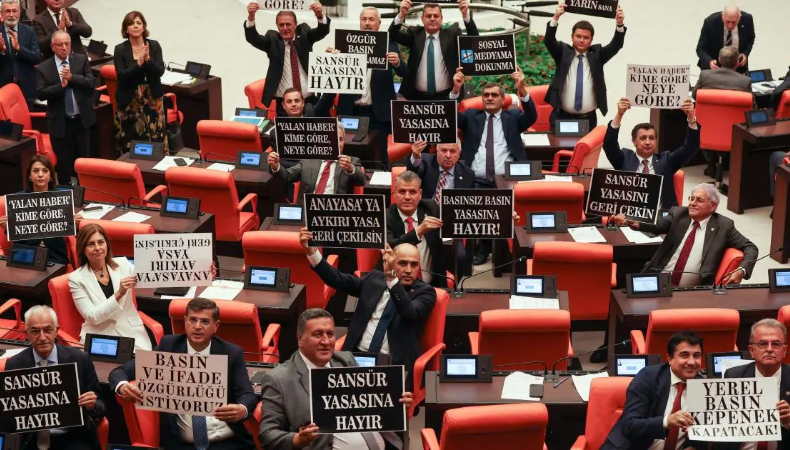Turkey’s New Law Against Foreign Influence Sparks Fears Over Free Speech and Media Crackdown

Rising major questions among civil society organizations, reporters, and media groups over the effects on freedom of expression and dissent, Turkey is ready to enact a new law intended to prevent foreign influence on issues judged against the national interest. Soon to be discussed in the Turkish parliament, the law would punish those caught acting “against the state’s security or its political interests,” under the influence or orders of foreign entities, up to seven years in prison. Viewers think the law’s vague and general phrasing could allow the government to attack critics indiscriminately.
The Possible Effect of the Law on Civil Liberties and Opposition Expressiveness
Proposed as part of a larger judicial reform by President Recep Tayyip Erdogan’s ruling AK Party, the measure has similarities with comparable foreign-agent regulations passed in Georgia and Russia, which detractors claim are designed to quell opposition. Many in Turkey see this action as an increase of governmental control over public opinion, pointing out its uncertainty as a means of silencing voices opposing the government.
Legislator from the opposition Republican People’s Party (CHP), Inan Akgun Alp, called the measure “deeply authoritarian,” cautioning that its nebulous language might be used against a wide spectrum of opposition leaders. “The language of the law is purposefully broad, creating a path for silencing any kind of opposition or criticism,” Alp said.
An Increasing Trend of Media and Free Speech Restricted in Turkey
Recent years have seen a string of regulations passed in Turkey that some claim restrict freedom of speech. With thousands of people arrested on allegations including insulting the president, Erdogan’s government has tightened its hold over the media. Opponents of a 2021 law aiming at “disinformation” have denounced it as a “censorship bill” since it lets authorities punish people who deviate from the official narrative. Human rights activists have also objected. Under this law, offenses like disseminating misleading information regarding Turkey’s public welfare or security might result in three-year prison sentences.
Now adding to these restrictions, the new foreign-influence measure essentially criminalizes media labor connected to foreign organizations. Vice president of the European Federation of Journalists (EFJ), Mustafa Kuleli voiced worries about the law potentially subjecting daily journalism and advocacy efforts to severe consequences. “We consider this as an alarming threat to freedom of expression and civil society,” Kuleli said.
A backlash to the proposed bill has been generated by many media and civil society organizations pushing the government to change its mind. Declaring the proposed law unacceptable and advocating its withdrawal to safeguard the right to free expression, a coalition of Turkish media outlets has issued comments.
Turkey has been ranked among the worst offenders in jailing reporters in recent years. Turkey was ranked as the 10th worst nation worldwide for suppressing media workers in the 2023 Committee to Protect Journalists report; this is a position it has consistently inhabited since Erdogan took office ten years ago.
World Reactions and Turkey’s Future Direction
Particularly among NATO allies and human rights organizations, who see the measure as a retreat for democratic liberties in the nation, it has also attracted worldwide scrutiny. With Turkey’s national and international reputation online, the discussion of this bill emphasizes the conflict between state security and civil liberties—a balance that is still fiercely fought inside Turkey’s changing political scene.
Civil society and media groups are on alert as the parliament debates a measure they worry could penalize dissenting voices and compromise Turkey’s dedication to freedom of expression.




